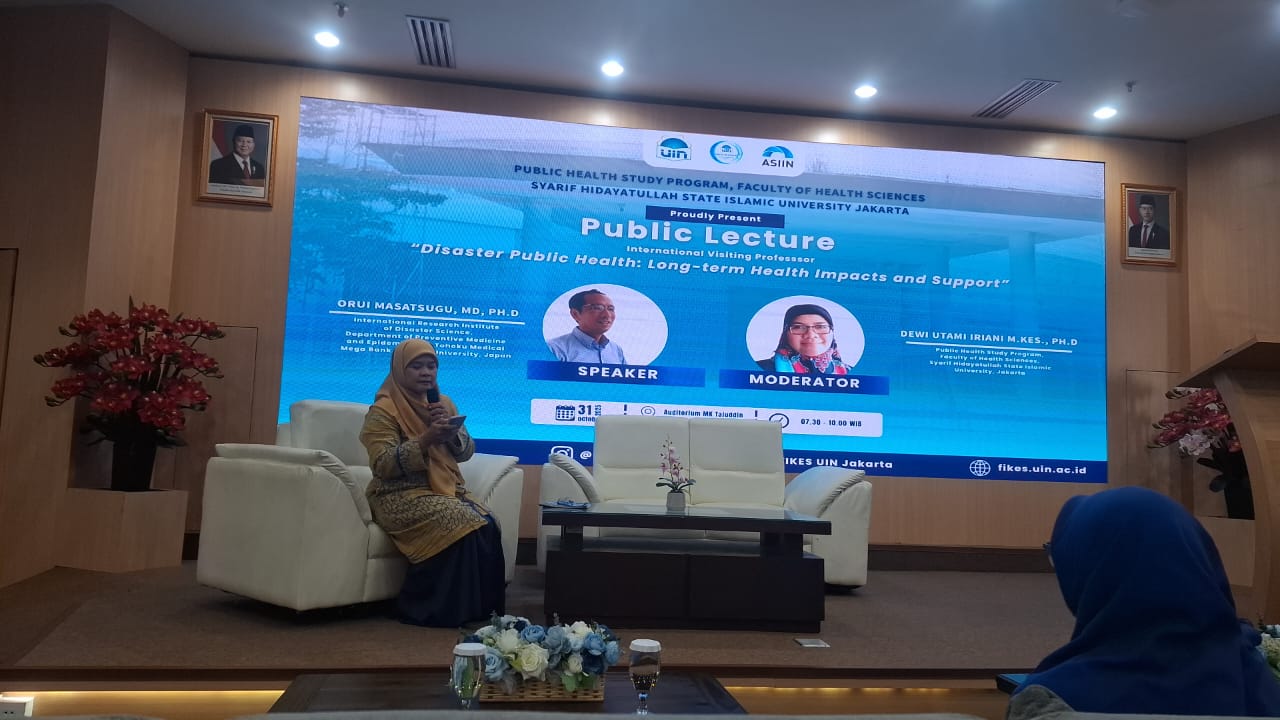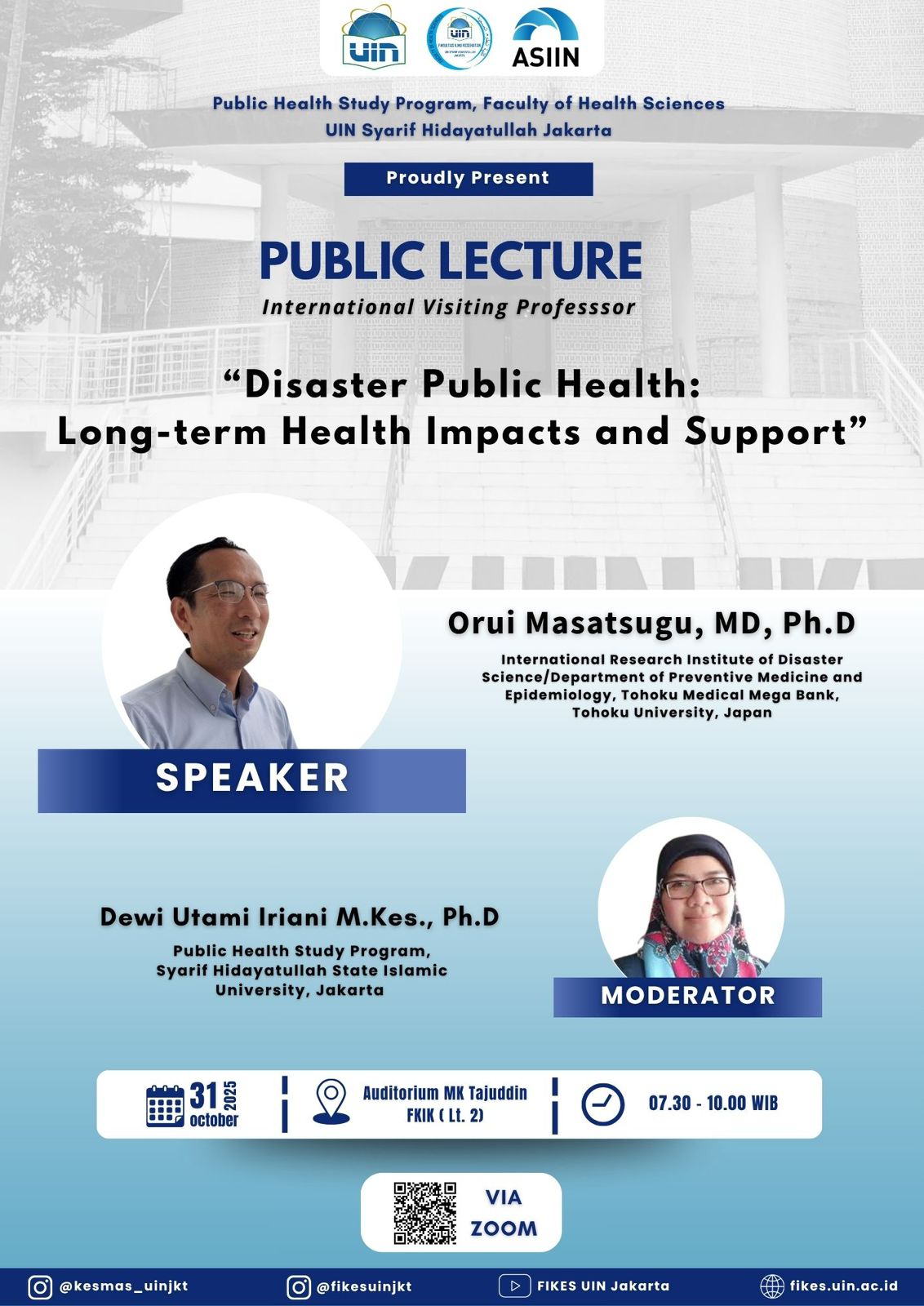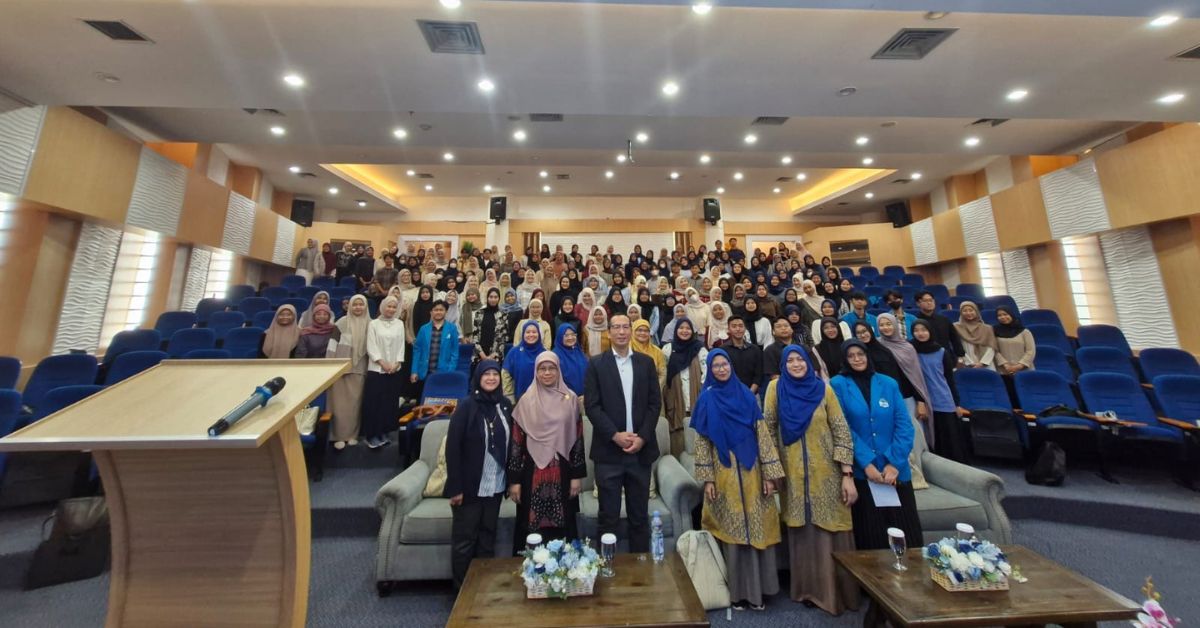International Public Lecture on “Disaster Public Health” at FIKES UIN Jakarta with Tohoku University
Fikes Online News — The Faculty of Health Sciences (FIKES) at UIN Syarif Hidayatullah Jakarta held the International Visiting Professor Program for the 2025/2026 academic year. The event featured a guest lecturer from Tohoku University, Japan, who delivered a public lecture titled “Disaster Public Health: Long-Term Health Impacts and Support.” The lecture took place at the MK Tadjudin Auditorium, Faculty of Medicine Building, in a hybrid format, attended by lecturers and students from various study programs. Friday (31/10/2025)

Strengthening Academic Capacity and International Collaboration
The event was officially opened by Dr. Nurmeilis, M.Si., Apt., Vice Dean of academic affairs FIKES UIN Jakarta, who emphasized the importance of international academic engagement to broaden the global perspectives of the academic community. “Collaboration with international universities such as Tohoku University serves as a valuable opportunity to expand knowledge and build research networks in public health, particularly in the field of disaster management,” said Dr. Nurmeilis. The lecture attracted enthusiastic participation from fifth- and seventh-semester students of Public Health, Nursing, and Pharmacy study programs, both offline and online.
Insights from the International Public Lecture
The keynote speaker, Orui Masatsugu, MD, Ph.D, a psychiatry expert from Tohoku University, presented the concept of Disaster Public Health, emphasizing the importance of preventing and managing the public health impacts of disaster, both physical and mental.
In his presentation, Dr. Orui explained three major approaches to health mitigation in disaster contexts:
- Primary Prevention – Preparations before a disaster to prevent direct deaths.
- Secondary Prevention – Immediate response after a disaster to minimize acute impacts.
- Tertiary Prevention – Long-term support to prevent indirect deaths and chronic health issues.
He also shared Japan’s experience during the Great East Japan Earthquake (GEJE) 2011, highlighting the critical roles of the Disaster Medical Assistance Team (DMAT) and Disaster Psychiatric Assistance Team (DPAT) in maintaining both physical and mental health among affected communities. “A holistic approach that involves psychosocial and community support is key to strengthening post-disaster resilience,” said Dr. Orui.
Interactive Discussion and Student Engagement
The session, moderated by Dewi Utami Iriani, SKM, M.Kes., Ph.D., featured lively interaction as students posed insightful questions about disaster classification, differences in mental health conditions between shelters and temporary housing, and the roles of students in Japan’s disaster response efforts. “This lecture really broadened our understanding of the essential role of public health in disaster mitigation and recovery,” said Ramadani, a Public Health student who attended the session.
Recommendations and Future Collaboration
In his closing remarks, Dr. Orui offered several recommendations for advancing academic development in Indonesia, including: - Integrating disaster public health concepts into disaster management curricula.
- Increasing research on long-term post-disaster health impacts;
- Developing both online and offline training systems for health workers;
- Applying the Build Back Better principles in line with the Sendai Framework for Disaster Risk Reduction.
Meanwhile, Riastuti Kusuma Wardani, MKM, Ph.D. as the Head of the Organizing Committee, stated that the program marked a strategic step toward strengthening FIKES UIN Jakarta’s research collaboration and academic capacity at the global level.
The event is expected to pave the way for sustainable research collaboration between FIKES UIN Jakarta and Tohoku University, as well as to enrich the disaster-based curriculum grounded in Islamic values. FIKES UIN Jakarta reaffirms its role as a center for public health development that is responsive to global issues and actively contributes to strengthening community resilience against disasters. (IH)


